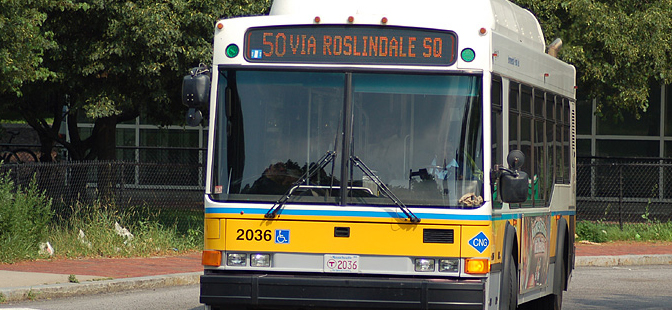Don’t Stop the Momentum on T Reform
/0 Comments/in Better Government, Blog, Blog: Better Government, Blog: MBTA, Blog: Transportation, Featured, News: Transportation /by Editorial Staff Share on Facebook
Share on Twitter
Share on
LinkedIn
+
Today, Pioneer Institute submits testimony in support of MBTA bus maintenance and management reform at a hearing of the Massachusetts State Senate Committee on Post Audit and Oversight. The MBTA is proposing to outsource bus maintenance at 3 of its 9 garages, a practice which has been successful at regional transit authorities across the state.
The proposal would have minimal impact on the agency’s mechanics, who would remain in the Machinists’ union; but would free the T to make needed management improvements currently prohibited by contracts that limit the duties of Supervisors. Modernization of business practices as a result of the proposal could save taxpayers $11 million per year. Studies have found opportunities for improvement in the operation’s software system, standards, purchasing practices, and supply chain management. During the MBTA’s three-year exemption from the commonwealth’s anti-privatization law, the T has seen significant savings when private contractors have been granted oversight of warehouse operations and cash handling. These savings can be invested in critical system upgrades. Read our full testimony, and our op-eds, media coverage, and research below.
Get Updates on Our Transportation Research

We Have a Long Way to Go for Massachusetts Residents to Have the Government Transparency We Deserve
As Pioneer Institute observes Sunshine Week,?we are disappointed by the legislature’s attempts to deny what the vast majority of voters want: an audit of the legislature by our State Auditor. Trying to avoid an audit further exacerbates the loss of public trust. After all, what are we left to think? Do they have something to hide? That is not the government our founders intended; nor is it what 72 percent of Massachusetts voters wanted. This year, during Sunshine Week, we are entirely focused on the top three actions to bring sunlight to the state legislature. They are:
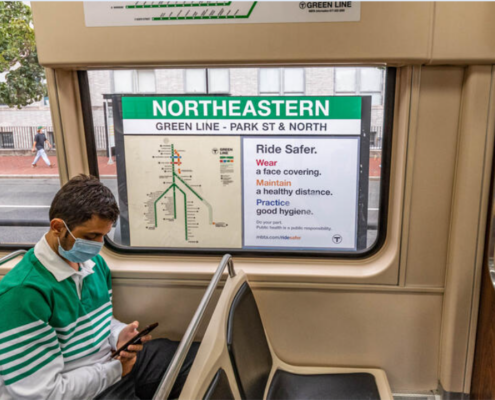
How Public Transportation’s Efficiency Changed During Covid
The MBTA's efficiency plummeted during Covid; as people chose either personal transportation or personal work, the MBTA lost significant ridership. However, it maintained its vehicle fleet and the depth of its services even as its operating cost per passenger mile increased dramatically.
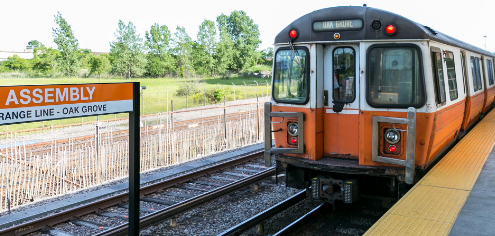
The MBTA’s Aging Infrastructure: Improvements have Failed to Materialize for the T
Reform for the MBTA has long been a priority for Massachusetts government. However, the MBTA still struggles to grow its ridership and revenue, as its infrastructure grows increasingly in need of repair.
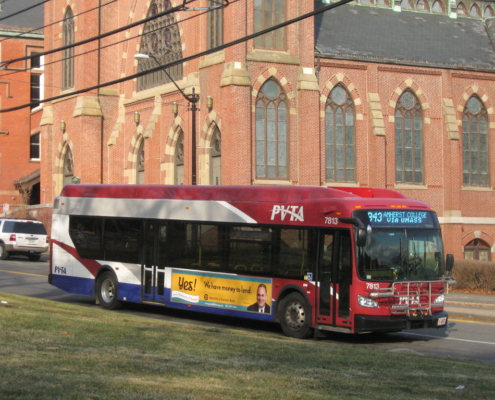
Cheap, Efficient, Effective: The Lessons from the PVTA and WRTA
The MBTA is recognized as one of the best transit systems in the nation. It's not perfect, however: comparisons to other Massachusetts transit systems can indicate the MBTA's flaws and highlight the regional authorities' strengths.
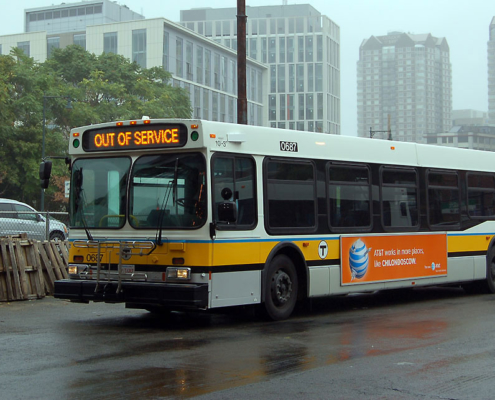
Fare-Free Public Transit in Boston: A Holistic View
In recent years, ridership on bus routes which run through low-income areas has increased due to programs which have eliminated fares on those routes. With some politicians looking to expand this to all Boston transportation, it is important to remember that while public transit is good for society, it is not a public good.

Public Comment on Allston Multimodal Project
We remain pleased with the decision of MassDOT to concentrate its efforts on the all at-grade option for the throat area of the Allston Multimodal Project as recommend by Pioneer Institute and others. However, we are deeply concerned that the construction will negatively impact commuters coming into Boston from points west.
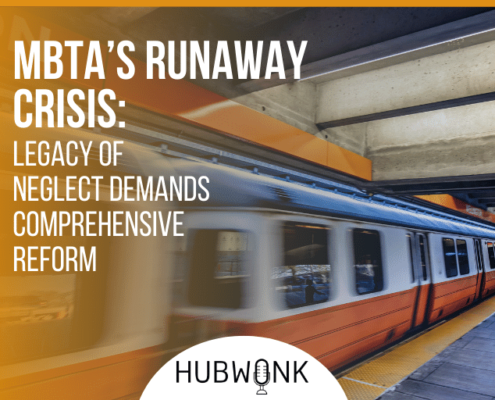
MBTA’s Runaway Crisis: Legacy of Neglect Demands Comprehensive Reform
This week on Hubwonk, host Joe Selvaggi talks with Andrew Bagley, Vice President for Policy and Research at Massachusetts Taxpayers Foundation, about their recent report entitled, The MBTA Crisis is Complicated - Fixing It Will Be Too, diving into the details on why the T is in crisis and what the public must demand of policy makers to get it back on track.

The Second Largest Public Construction Project in MA is to give Logan International Airport a New Look
According to Pioneer Institute’s MassOpenBooks, the two construction…
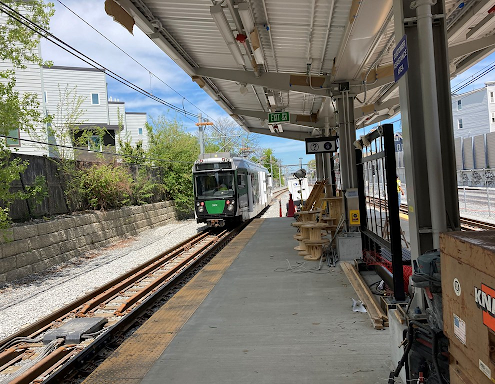
The Green Line Extension Project Progress and Finances
Earlier this month, a Boston Globe article informed Boston residents…
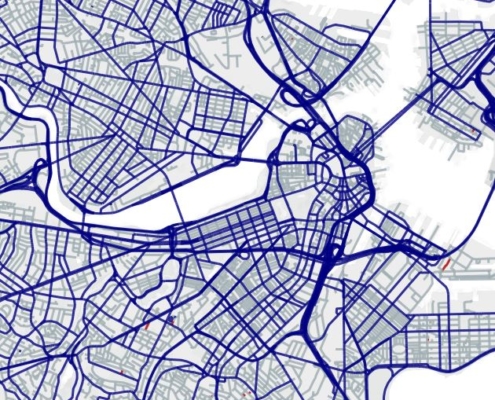
Looming Budget Crisis Reveals MBTA’s Dependency on Federal Funds
The MBTA is about to lose federal funding at a critical moment when ridership has not yet recovered. Will the state make up the difference?

Study Finds Pension Obligation Bonds Could Worsen T Retirement Fund’s Financial Woes
A new study published by Pioneer Institute finds that issuing pension obligation bonds (POBs) to refinance $360 million of the MBTA Retirement Fund’s (MBTARF’s) $1.3 billion unfunded pension liability would only compound the T’s already serious financial risks.

Study Documents The Design Challenges, Contracting Issues, And Delays Facing New MBTA Fare Collection System
This new study unearths previously unseen communications between the MBTA and its contractors, showing that the MBTA’s efforts to modernize its fare collection system, including allowing payments with credit cards and bringing “tap and go” technology to Commuter Rail and ferry lines, was riddled with technological challenges and difficulties overseeing contractors as early as 2019, culminating in a 3-year delay to the project’s full implementation.
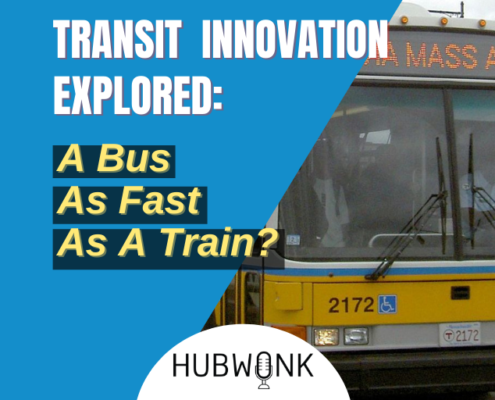
Transit Innovation Explored: A Bus As Fast As A Train?
Hubwonk host Joe Selvaggi talks with transportation expert Ian Ollis about the findings of his new research paper, "Bus Rapid Transit: Costs and Benefits of a Transit Alternative," which examines the benefits of building Bus Rapid Transit to serve communities looking for faster transit alternatives to a car.

Study Finds Bus Rapid Transit Can Offer Cost-Effective Benefits
Bus rapid transit (BRT) incorporates unique features such as dedicated lanes to provide reliable and cost-effective service while reducing congestion and its detrimental environmental impacts, according to a new study published by Pioneer Institute.

Study Raises Concern That Annual T Fare Evasion Costs Could Rise By More Than $30 Million Under AFC 2.0
According to the Federal Transit Administration (FTA), the MBTA’s $935.4 million fare collection system (AFC 2.0) that is scheduled to be implemented in 2023 will reduce fare evasion by $35 million over a decade. But the T announced in 2021 that evasion could actually increase by up to $30 million under AFC 2.0, and now a Pioneer Institute study warns that insufficient fare enforcement could drive that figure even higher under the new system.

Pioneer Applauds MassDOT for Allston Project All At-Grade Plan
Pioneer Institute applauds the Massachusetts Department of Transportation (Mass DOT) for its decision to move forward with an all at-grade design for the “throat” area as part of the massive $1.7 billion Allston I-90 Interchange project announced yesterday by State Secretary of Transportation Jamey Tesler. Pioneer had proposed that MassDOT should revise its Scoping Report on the I-90 Allston Multimodal Project and recommend an additional option - a modified at-grade option for the throat area - to the Federal Highway Administration.

Enduring the Maelstrom: Lessons from MassPort Leadership During 9/11
Hubwonk host Joe Selvaggi talks with author and former MassPort CEO Virginia Buckingham about her recently released book, On My Watch: A Memoir, which chronicles her experience leading the organization through 9/11 and the life and leadership lessons learned from that tragic day.

MBTA Ridership Trends Compared to Public Transportation Agencies Nationwide
The COVID-19 pandemic had a devastating effect on our economy,…

